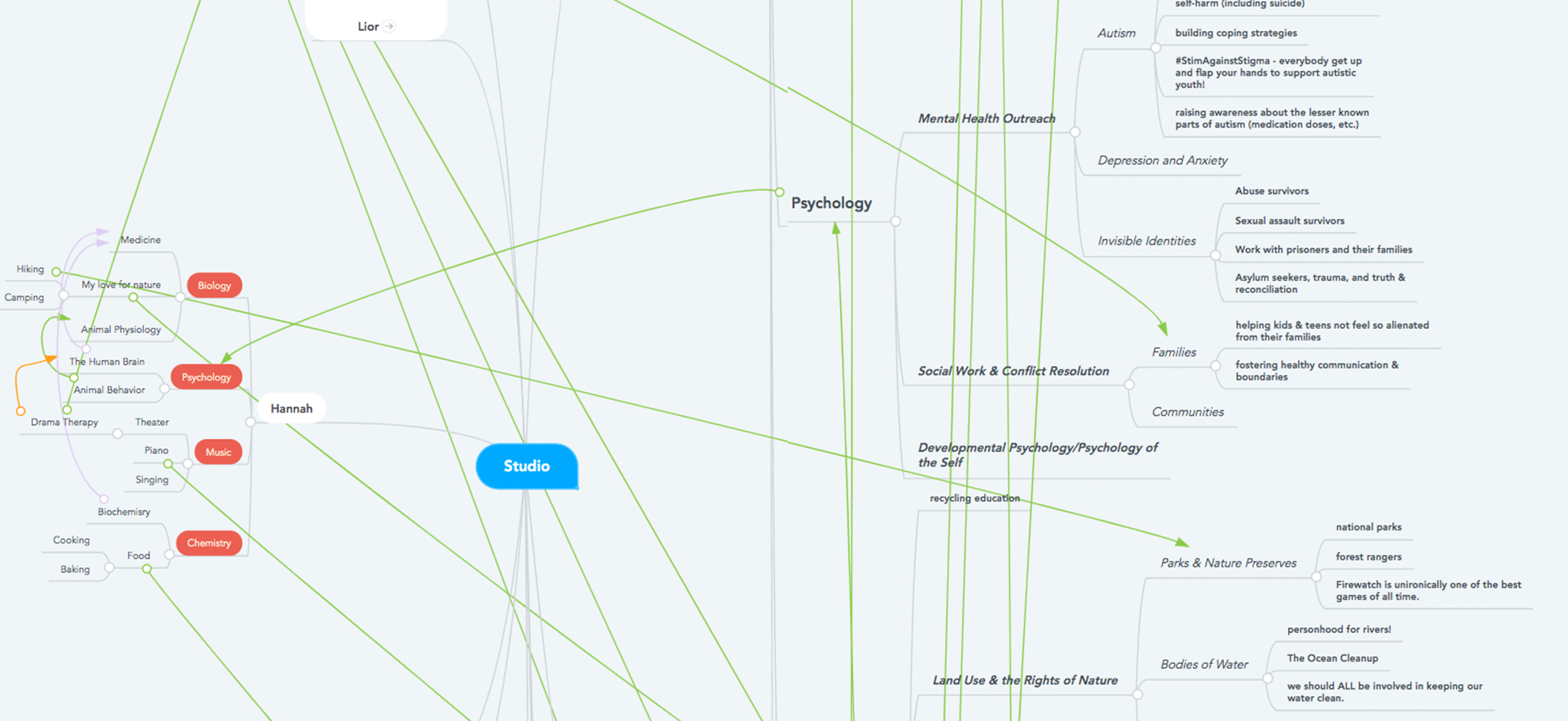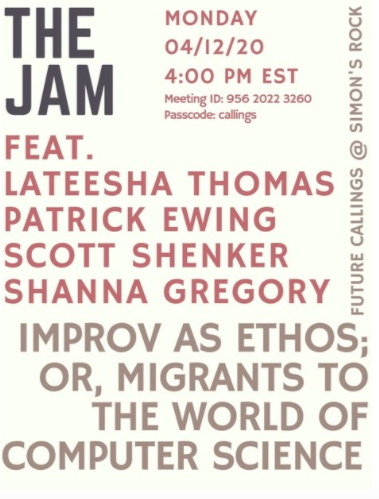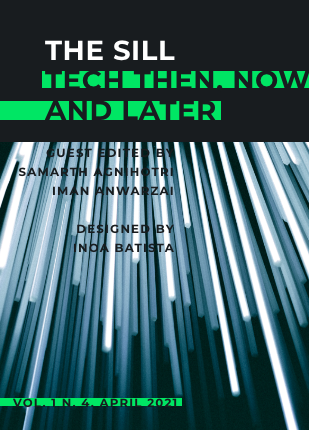New BA Studio Transcends Traditional Boundaries of Academia
Each generation—indeed, each new class—of Simon’s Rock students invents their own ways of thinking, being, and creating wherever they go. It’s no surprise then, but still exciting, that earlier this year Rockers came together with faculty to launch the Simon’s Rock Studio in Collaborative, Transdisciplinary, and Experimental Inquiry and Practice—known around campus simply as “the Studio.”
The Studio is an intellectual maker-space and communal learning project driven by a small group of inaugural Studio Fellows—students who are working together to develop new projects and ideas that put their intellectual and extracurricular pursuits into action. The Studio aims to transcend disciplinary boundaries and allow students to gain new knowledge, practice emerging skills, and forge connections with other students, faculty, staff, and alumni who have a wide variety of experience and interests. The entrepreneurial atmosphere, in which the Studio Fellows take charge of the agenda, simulates that of a start-up or a think tank.
Asma Abbas, faculty in politics and philosophy and a creator of the program, describes the Studio as “an intentional space for faculty and students who want to deal with certain questions and to think about putting them into practice.” The program is structured as a course available to Upper College students in the BA program, who receive a range of credits based on how long they participate in the program. There have been up to a dozen Fellows to date, but any member of the community can approach the Studio with ideas for projects and collaboration.
Cross-pollinating Ideas and Actions
The ethos of the Studio is to foster a shared space for the Fellows and other members of the Simon’s Rock community to solve problems, develop new ideas, and stay accountable to one another as the projects progress. The goal is to move away from a hyper-individualized mode of learning and instead carve out a space for collaboration and cross-pollination.

During initial meetings, the Fellows worked together to develop an interactive “mind map” documenting their individual interests, with the goal of discovering symbiotic connections that could lead to actionable projects.
Under the guidance of faculty mentors like Asma, the Fellows culled ideas for experimental research and practice into a shortlist of projects that they’ll be responsible for implementing from start to finish.
Iman Anwarzai, a junior with a concentration in computer science in the Dual Degree: Columbia Engineering Program (BA/BS), is working with Samarth Agnihotri, a junior focusing on physics and pre-med, to develop SRJinx, a website that she describes as “Craiglist meets LinkedIn, but for projects”—essentially a newsfeed that matches students’ skill sets with other students’ project needs.
Samarth, a self-taught computer coder, added, “for example, if I have website design skills, and I’m looking to use them, I would be connected with someone who’s building a startup and needs web design support.” The pair are working on deploying SRJinx to the Simon’s Rock community this semester with plans of offering it more widely to the broader Bard network in the future.
Inoa Batista is a senior studying remotely out of Oaxaca, Mexico this semester. Her academic studies combine cross-cultural relations, visual studies, ceramics, and anthropology, but she’s always been interested in publishing. She decided to work closely with another Studio Fellow to stand up The Sill, a digital, bi-weekly publication. The outfit bills itself as existing “within the Simon’s Rock community yet outside the academic institutional structure,” and comprises writings, thoughts, and multimedia projects by both Studio Fellows and the extended Bard Network. The intention of The Sill, notes Inoa, is to enable students “to put into practice what they’ve learned in the real world—and turn it into something to be shared” with the community.
A New Approach to the “Real World”
Another component of the Studio Fellows Program is around the cultivation of professional skills and mentorship, but not simply in the form of a resume workshop. Provost John B. Weinstein explained,“College students in 2021 will go through even more career transitions than the young professionals in the workforce today.” The Studio is intent on offering all Simon’s Rock students a forum for intentionally thinking through potential career pathways in a less transactional, conventional way, with more of an emphasis on elucidating the reasons behind pursuing a particular career.

A digital poster for a Future Callings discussion.
A Rewarding Community-Driven Experience

Reflecting on her experience as a Studio Fellow, Iman, who is set to intern at Facebook this summer, said, “it feels really rewarding—I like to have a deadline for projects—but that wasn’t the case” for her work in the Studio. Instead, she now has the chance to set the pace of her own projects and help “shape the direction of an entire course” for other students.
The freedom to pursue self-directed and collaborative ideas, work at his own speed, and apply new approaches to problem-solving is the type of work that excites Samarth, who is considering a career in programming and cybersecurity. “It’s nothing like I’ve ever done before at Simon’s Rock,” he noted. “I’ve always had this idea that if someone else can do something, I can too—it’s just a matter of learning the skills.”
The Studio, says Asma, presents a different aspect of the Simon’s Rock BA program that should “constantly push the bounds of learning and collaboration.” The hope is to create something that is driven by the community, that is passed down from one generation of students to the next, and that evolves over time. The Studio is currently exploring the potential to create a physical space on campus with an open-door policy for anyone to drop in to collaborate on transdisciplinary practice and research.